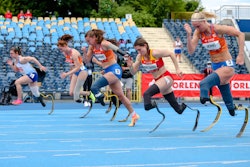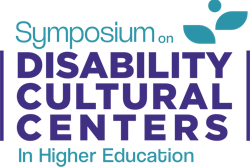Last year the U.S. Justice Department reached a settlement with Louisiana Tech University and the Board of Supervisors for the University of Louisiana System to rectify concerns about alleged violations of the Americans with Disabilities Act (ADA). The department maintained that the institution violated the law by using a version of an online learning product that was inaccessible to a blind student. The student’s lack of access to the course materials lasted nearly one month into the quarter and the student fell so far behind in his work that he had to drop the class.
The settlement also resolved similar complaints about another course in which the same student alleged he was not provided accessible course material for class discussions or exam preparations on time.
As part of the settlement, Louisiana Tech agreed to make significant changes to make materials more accessible to visually impaired students, including training instructors and administrators on ADA requirements and “deploy[ing] learning technology, web pages and course content that [was] accessible in accordance with” the guidelines.
The student also received more than $23,000 in damages from the university.
The Louisiana Tech case was just one of many instances in the last three or four years in which the federal government has gone after higher education institutions in an attempt to force them to be more compliant with ADA requirements.
In 2013, the U.S. Department of Education’s Office for Civil Rights entered into an agreement with the South Carolina Technical College System, the state’s largest higher education system, to ensure that the websites of the system’s 16 colleges are accessible to people with disabilities. ADA settlements or consent agreements with the Justice Department or Department of Education have also been reached with other universities and organizations, including the University of Montana and the Law Schools Admissions Council.
More welcoming environment
At the heart of these cases was a belief that many were not doing enough to ensure that blind students or students with other visual impairments gained access to learning materials as required by the ADA. In the case involving the LSAC, the process for accommodating students was deemed burdensome.
Experts have called these series of settlements game changers. They say that it will lead to an increase in the quality of learning materials for the visually impaired and create more access for them.
Some universities and university systems have been working to stay ahead of the curve by enabling systems that make the academic environment more welcoming to students.
The University of North Carolina system is working to implement the Universal Design for Learning, which uses educational tools that help learning disabled students boost their performance in the classroom. UDL offers tools to professors to present materials using certain types of interactive technology, helping students with different learning challenges more effectively grasp the course materials. Over the last couple of years, it has worked to implement UDL at three campuses and is introducing it to a fourth this fall.
Dr. Sarah Williams is an associate professor of special education and director of Project STEPP, an initiative designed to help learning disabled students at East Carolina University. She is helping oversee the implementation of UDL at four campuses: East Carolina University, the University of North Carolina at Greensboro, Appalachian State and Fayetteville State. “We are looking at different models to make our campuses more welcoming for people with different learning needs,” she says.
Williams says one of the aims of the grant-funded initiative is to help faculty members, tutors and advisers learn more about UDL.
“This way, they will think about the widest range of possible learners,” she says.
Williams adds that UDL is a great tool to help them see how differently students learn.
Obstacles to access
But some university officials and even disability advocates say there are obstacles to creating technological access for students with different learning needs.
“The biggest challenge, I think, is that software technologies develop rapidly,” says L. Scott Lissner, ADA coordinator and 504 compliance officer for The Ohio State University.
He says Ohio State tackles such challenges by proactively finding accommodations for students with disabilities while providing IT contractors a limited amount of time to find a solution to the software challenges, usually no more than two years. Failure to meet that deadline could lead to a termination of the contract, Lissner says.
Lauren McLarney, a government affairs specialist for the National Federation of the Blind, says there’s also a supply and demand issue. She says a consent agreement reached with a handful of institutions is not enough to influence the software market.
“Until there is widespread demand, the market will not produce accessible technology like we would want them to,” she says. “The schools are isolated players in this vast market. There’s no way that those schools will influence the market. Is [a] settlement agreement good for Louisiana Tech? Yes. But it’s not going to influence the market.”
McLarney says another complication stems from the fact that in 2010 both the departments of Justice and Education issued compliance guidelines for colleges and universities. But, she says, they were not specific enough. McLarney notes there’s a big push for Washington to establish specific criteria.
Still, many universities say they are looking ahead and trying to be proactive rather than reactive — the better to stay out of hot water with the feds.
“I think it’s causing universities to be much more aware about being creative in terms of answering students’ needs and engaging with faculty,” says Anita Jenious, director of equal opportunity, affirmative action, and disability services at Vanderbilt University.
“The settlement made it clear that we really have to do a certain amount of advocacy on behalf of the students. We have to look at university resources as a whole,” she says. “It is in a university’s best interests to really engage with that student. If it’s a reasonable request, we are obligated to do that or offer a reasonable alternative. If [we don’t do it], that is not acceptable.”
Dr. Manju Banerjee, vice president and director of the Landmark College Institute for Research and Training, says institutions are best served if they strive to deal with students’ accommodation needs on a case-by-case basis. Landmark College is a school that caters to students with disabilities.
“Accessibility is not a formulaic science, but an art,” she says. “Institutions that have tried to use a formula have gotten in trouble with the law. You can’t look at test scores and decide if someone is eligible for certain accommodations or not. … It’s a negotiated discussion with the student. It’s partly case-by-case, but it’s also a learning environment which has proactively built in options.”
Of the recent settlements with various higher education institutions, Banerjee says, “It is definitely going to have a ripple effect.
“Most of the stakeholders are in general encouraged by recent trends. What I think this has already started is [that] institutions are taking a new look at policies around access and around accommodations. [It] highlights a need to look at accessibility beyond technology,” she says.
“I think institutions are going to bring accessibility discussions to the table right at the start, whereas in the past they have always been an add-on part. So now they will have someone from the ADA office as they start discussions.”





















